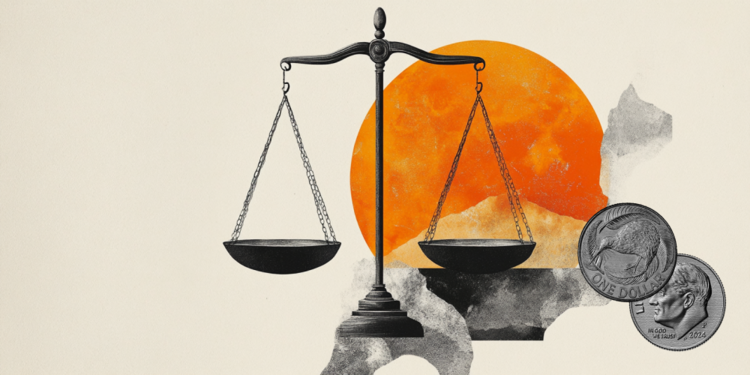The period to declare the 2023 Income Tax begins on March 15 and runs until May 31, informed the Federal Revenue last Tuesday (14).
All those who earned income above BRL 28,559.70 in the year 2022, or who received more than BRL 40,000 in exempt, non-taxable or taxable income, must make the declaration.
To render accounts with the lion, the taxpayer will need to gather some documents and information. The recommendation is to make this selection in advance and avoid making mistakes or omissions in the declaration, avoiding not falling into the fine mesh or having problems with the refund.
A CNN consulted the accounting company IOB to gather what you need to have on hand to stay up to date with the Federal Revenue Service. According to Valdir Amorim, the company’s legal and tax technical coordinator, “the sooner the declaration takes place, the greater the chances of receiving the Income Tax refund well before, if you are entitled to it”.
Check the required documents below:
personal data
The IR declaration requires some documents for personal identification. Are they:
- Identification Card No;
- CPF;
- Proof of address;
- Proof of professional activity;
- Voter card;
- Bank details for receiving the refund;
- Cell phone number for contact;
- Information on dependents and partner, if any: full name, CPF and date of birth.
If the taxpayer has made the IR declaration in 2022, it is also necessary to inform the document number and have a complete copy.
Income receipts
Part of the paperwork required to prove income is delivered to taxpayers by service providers and employers.
By the end of February — more specifically, by 11:59 pm on the 28th — employers, banks, financial institutions, health plan companies, among others, must release income statements. Other documents, however, are the responsibility of the taxpayer.
You need to have on hand:
- Income report, provided by the company until February 28 at the latest;
- Retirement and/or pension income report, obtained from the Social Security website;
- Information on income from financial institutions, such as banks and stockbrokers;
- Report of income received from renting movable and immovable property;
- Information and documents of other income, such as alimony, donations and inheritances;
- Profit distribution income report (compensation paid to shareholders/partners of a company);
- Pro-labore (if applicable);
- Carnê-Leão data;
- Income reports from tax programs, such as Nota Fiscal Paulista;
Here, it is also necessary to include dependent income reports, if any.
Assets and rights
Anyone who sold or bought a good last year must gather the main information about the acquisition, such as the name and CPF/CNPJ of the person who bought or sold it, whether the deal was paid in cash, in installments or financed. In general, you must have:
- Documents proving the purchase and sale of goods and rights in 2022, such as a contract, receipt, deed or invoice;
- Copy of the registration of the property and/or deed of purchase and sale;
- 2022 IPTU bill;
- Documents proving shareholding position in a company, if applicable
If the taxpayer has registered a capital gain from the sale of assets and rights, he will need the data from the Capital Gains Statement – 2022 (GCAP) for import.
Payment receipts
Some expenses — mainly in the health and education sectors — may be deducted from the income tax return. Therefore, take advantage of the time in advance until the delivery deadline begins to gather slips, receipts and invoices paid over the past year.
In these cases, it is necessary that the receipts detail the name of the provider, address, the service provided, value, CPF or CNPJ of the person who provided the service, in addition to the full name of the taxpayer and CPF.
Below are some examples of payments that need to be declared:
- Receipts or reports of income from insurance and health plans;
- Medical and dental expenses in general;
- Proof of education expenses (only primary, secondary, higher, graduate or technical education);
- Proof of payment of Social Security and / or private;
- Proof of child support payments (by court decision);
- Receipts for donations made.
Other documents
For taxpayers with debts or encumbrances contracted (or paid) during the year 2022, it is necessary to inform documents proving the financial situation. Not everyone with debts needs this document — only if the amount is greater than R$5,000.
It is also not necessary to declare real estate financing debts, goods acquired by a consortium and rural activity debts.
Those who work with variable income also need to include the transactions in the income tax return. Have brokerage notes in hand, with control over the purchase and sale of shares, Federal Revenue Collection Documents (DARFs) for Variable Income and income reports acquired with variable income.
Change of rules in the 2023 IR
During 2022, the possibility of new rules in the 2023 Income Tax was discussed, such as the change in the table used in calculating taxation.
One of President Luiz Inácio Lula da Silva’s (PT) campaign promises was a possible reform of the Individual Income Tax (IRPF) with the expansion of the exemption range for those earning up to R$5,000.
But, in November, Senator Wellington Dias (PT), responsible for reviewing the budget, said that the issue will be addressed throughout the new government — that is, not necessarily this year.
The details of the changes to be implemented have not yet been disclosed, and currently there is already a project to reform the IR in progress in Congress and which has already been approved in the Chamber, but is awaiting a vote in the Senate.
The last correction in the Income Tax table was made in 2015, which means that it is currently out of date. Therefore, according to the rules in effect today:
- Those who receive up to R$ 1,903.98 per month are exempt from Income Tax;
- Those who receive monthly between R$ 1,903.99 and R$ 2,826.65 pay a rate of 7.5%;
- Those who receive monthly between R$ 2,826.66 and R$ 3,751.05 pay a rate of 15%;
- Those who receive monthly between R$ 3,751.06 and R$ 4,664.68 pay a rate of 22.5%;
- Those who receive more than R$ 4,664.68 monthly pay a fixed rate of 27.5%.
*With information from Fabrício Julião, from CNN, in São Paulo.
Source: CNN Brasil
I am an experienced journalist, writer, and editor with a passion for finance and business news. I have been working in the journalism field for over 6 years, covering a variety of topics from finance to technology. As an author at World Stock Market, I specialize in finance business-related topics.







